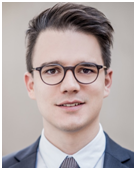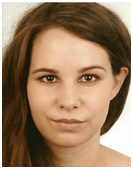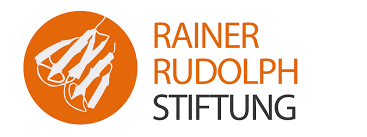
Max Plach received the prize for his dissertation entitled „Evolution of substrate specificity and protein-protein interactions in three enzyme superfamilies“. He worked for his degree in Regensburg at the Lehrstuhl für Biophysik und Physikalische Biochemie, headed by Professor Reinhard Sterner. In his work, Max showed that in the super family of ribose phosphate binding proteins, an enzymatic bifunctionality can remain evolutionarily conserved over a time range of more than two million years. Importantly, he was successful in identifying amino acid residues that are responsible for specific protein-protein interactions. For these specific areas of interactions, Max developed an algorithm which he termed „interface add-ons“. This work was published in Angewandte Chemie.

Rebecca Ebenhoch had performed the experiments for her Master thesis within a collaboration between the group of Dr. Alexander Pautsch at Boehringer Ingelheim and Professor Kay Diederichs at the Universität Konstanz. The topic of her work was the crystallographic analysis of the enzyme keto hexokinase (KHK) in different conformational states. KHK is the key enzyme of fructose metabolism and thus an important target for developing novel drugs against metabolic diseases caused by pathologic levels of fructose. Based on the numerous structures of KHK in the presence of various small-molecule ligands, she was able to propose a novel mechanism for the KHK catalytic cycle, which will serve as a basis to search for improved inhibitors of KHK. She currently works as a doctoral student, still with Boehringer Ingelheim.

